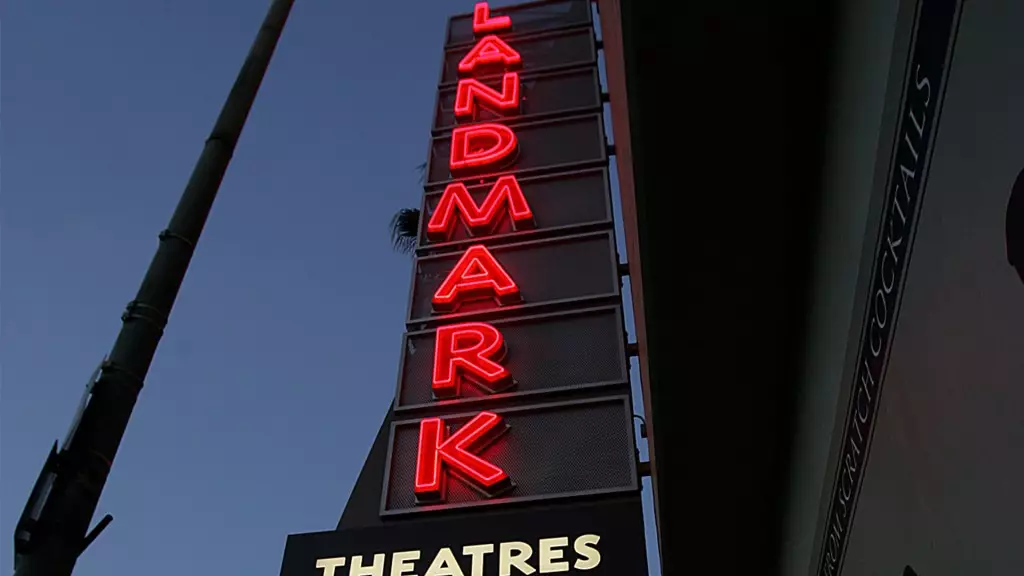The recent foreclosure auction involving Charles Cohen’s properties has unveiled a critical chapter in the ever-evolving landscape of independent cinema. Creditors and market dynamics are at play, with Fortress Investment Group emerging as the uncontested bidder. This situation raises significant concerns and questions regarding the management of major arthouse theaters, especially in a post-pandemic world fraught with unprecedented challenges for cinema owners. In this analysis, we will dissect the events surrounding the auction, examine the implications for both Curzon and Landmark Theatres, and speculate on the potential future of independent cinema.
In what can only be characterized as a rather one-sided auction, Fortress offered $5 million for Curzon, while Landmark Theatres saw no bids at all. The implications of these results are multifaceted. One could argue that Fortress’s acquisition of Curzon is a strategic play aimed at controlling a highly regarded arthouse distributor and exhibitor in the United Kingdom. However, the zero bids for Landmark paint a grim picture for Cohen’s management of the chain since he acquired it in late 2018. The independent distribution community has voiced discontent with his leadership, alleging a lack of investment and a problematic shift to more mainstream offerings.
The failure to draw any offers for Landmark suggests a growing sentiment that the brand may be fundamentally undervalued or mismanaged. If zero bids can be interpreted as a sign of confidence, it may reflect a disillusionment within the industry. Such hesitance strongly indicates that stakeholders do not see a viable path for the revival of Landmark, especially in light of its reported losses and casualties, including the closure of key locations.
Fortress’s decision to auction Cohen’s properties was likely spurred by substantial financial strain evidenced in a recent deposition where Cohen acknowledged Landmark’s losses of over $14 million and Curzon’s deficit of approximately $8.5 million. These figures signal not just managerial incompetence but point to broader systemic issues afflicting the arthouse sector, specifically regarding audience engagement and investment in traditional theater experiences. The critical question that stands out is whether Cohen is truly capable of addressing these escalating financial issues or if he has already lost the goodwill of both audiences and investors.
Cohen’s actions have not gone unnoticed; his transfer of properties to shield them from creditors raises significant ethical concerns about corporate governance and personal accountability. Fortress’s legal claim of a $187 million personal guarantee against Cohen underscores the magnitude of risk taken by the lender, and it highlights a looming sense of distrust surrounding his business practices.
The fate of Landmark and Curzon offers a glimpse into the precarious state of independent cinema. While the potential acquisition of Curzon by Fortress may lead to operational changes, it raises questions about the preservation of the arthouse ethos. Will the new management prioritize the distribution of niche films that articulate the diversity of independent cinema? Or will the focus shift towards broader, more commercial ventures dictated by a larger investment strategy?
In a landscape already fraught with challenges exacerbated by the COVID-19 pandemic, which drained resources and reshaped audience behavior, the future trajectory for these theaters appears uncertain. As industry stakeholders grapple with evolving viewer preferences and the competitive pressures of streaming giants, a pressing need emerges for innovation, investment, and acute awareness of the nuanced art of cinematic storytelling.
The outcome of the foreclosure auction involving Fortress and Charles Cohen signifies more than just a financial transaction; it encapsulates the trials and tribulations that arthouse theaters face in an industry bearing the scars of recent disruptions. With significant strains in both management and fiscal health, it remains to be seen whether new ownership can usher in a revitalized vision for independent cinema or if the legacy of these institutions will dissolve in the backdrop of a shifting entertainment landscape. The spotlight now falls firmly on Fortress as they navigate the complexities that lie ahead, with the cinematic world keenly observing their next moves.

